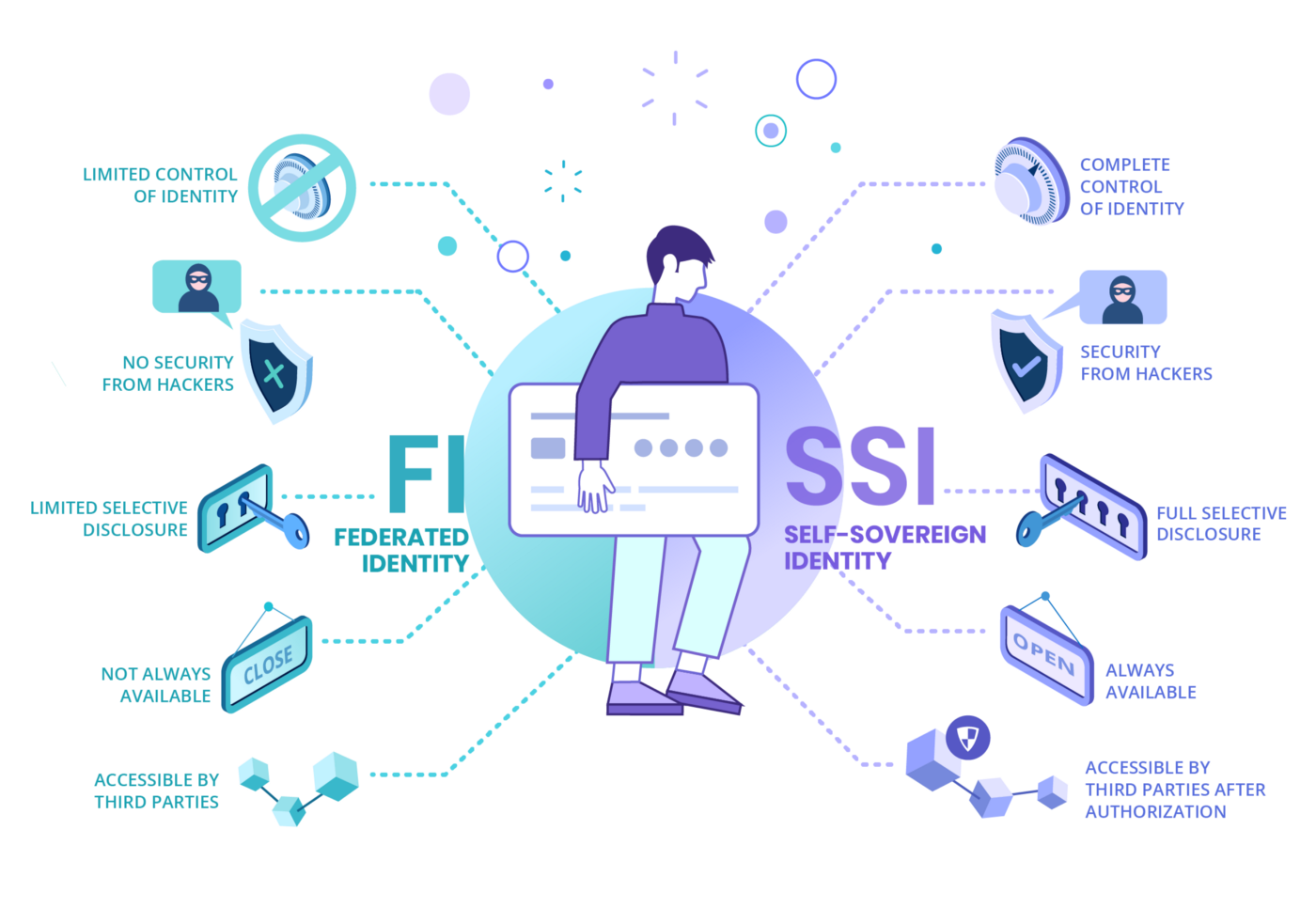
Self Sovereign Identity
Self-sovereign identity is an approach to digital identity that gives individuals complete control over their personal data and online identity. Instead of relying on third parties such as governments, companies, or institutions to manage and verify their identity, an individual can be the owner of their own identity and decide how to share their personal data with others.
Blockchain technology plays a key role in the implementation of self-sovereign identity. The blockchain allows for the creation of a distributed and secure ledger that can efficiently store and manage identity data. In addition, the cryptography in the blockchain enables secure authentication and verification of an individual’s identity without the need for third parties.
Self-sovereign identity has several benefits compared to the traditional way that identity is managed. Firstly, it gives the individual complete control over their personal data and how it is shared with others. This can help to protect an individual’s privacy and prevent the misuse of their personal data. Secondly, self-sovereign identity can improve online security as it enables secure authentication and verification of identity without relying on third parties. This can help to prevent online fraud and identity theft.
Furthermore, self-sovereign identity can also have positive economic implications.
By giving an individual complete control over their personal data, it allows them to share it more efficiently with businesses and obtain better offers and services. This can help to drive competition in the market and improve the quality of services offered to consumers.
However, there are also challenges and concerns with the implementation of self-sovereign identity. One of the main challenges is widespread adoption and interoperability between different self-sovereign identity systems. For self-sovereign identity to be effective, it needs to be widely used and different systems need to be able to interact with each other efficiently. In addition, there are also concerns about the security and vulnerability of self-sovereign identity systems to cyber attacks.
In conclusion, self-sovereign identity is a promising approach to digital identity that gives individuals control over their own personal data and online identity. By leveraging blockchain and cryptography technologies, self-sovereign identity enables secure and private communication between individuals and organizations. While there are challenges and concerns with its implementation, the benefits of self-sovereign identity, such as improved privacy and security, could potentially drive its adoption and ultimately give individuals more control over their own identity.
Examples
Some examples of self-sovereign identity solutions are:
- uPort: a platform that allows individuals to create and manage their own digital identity, using the Ethereum blockchain. uPort enables individuals to control their own personal data and share it with others in a secure and private manner.
- Sovrin: a decentralized identity network that uses a distributed ledger technology (DLT) called the Sovrin Ledger to enable individuals and organizations to create and manage their own digital identities. The Sovrin network is based on the concept of self-sovereign identity and gives users control over their own personal data.
- Civic: a blockchain-based platform that allows individuals to create and manage their own digital identity, and share it with others in a secure and private manner. Civic uses a combination of biometric authentication and blockchain technology to enable users to control their own personal data and identity.
- Jolocom: a self-sovereign identity platform that allows individuals to create and manage their own digital identity, using a combination of blockchain and smart contract technology. Jolocom enables users to control their own personal data and share it with others in a secure and private manner.
- ATALA Prism: It is built on top of the Cardano blockchain, and uses a combination of blockchain, smart contract, and cryptographic technologies to enable individuals and organizations to create and manage their own digital identities in a self-sovereign manner.

Comments